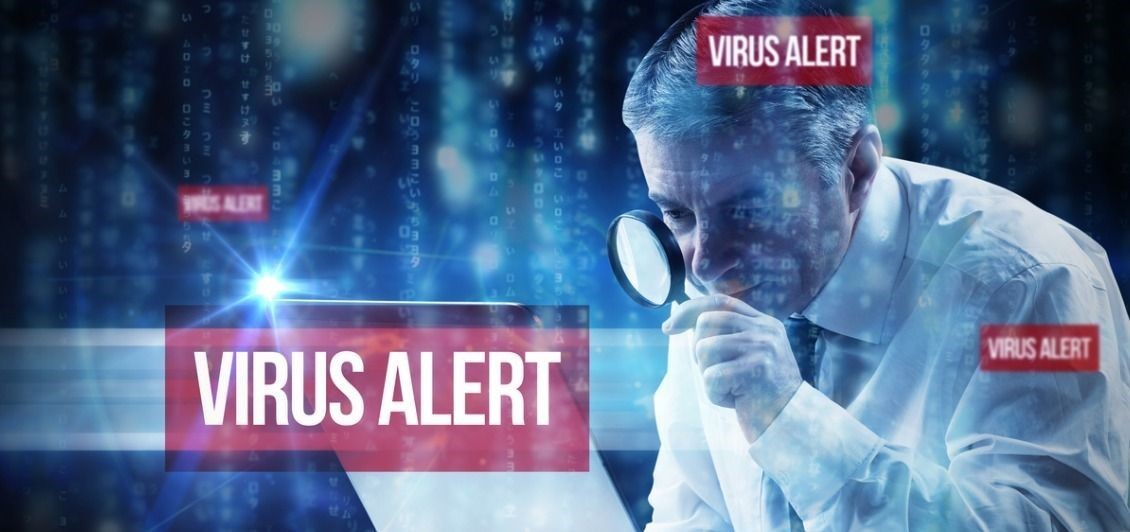
Simple Guides

Learn How to Stay Safe Online
 The Internet can be a dangerous place. Hackers use advanced cyber spying tools to get access to people's credit card information and online banking accounts, for example. According to data-alliance, the number of unique malware applications will exceed one billion in 2020. So, the World Wide Web can be scary; nevertheless, if you follow these top 10 rules, you will be able to avoid most threats.
The Internet can be a dangerous place. Hackers use advanced cyber spying tools to get access to people's credit card information and online banking accounts, for example. According to data-alliance, the number of unique malware applications will exceed one billion in 2020. So, the World Wide Web can be scary; nevertheless, if you follow these top 10 rules, you will be able to avoid most threats.

1. Don't share personal details with your virtual friends; some of them are hackers, and they will use that information to hack your accounts. Here's a real-life example: people who forget their account passwords can often log in by answering three questions such as "what is your dog's name?", and so on. As you can imagine, cyber criminals can get answers to questions like these easily, by examining their victims' Facebook profiles. So, even though he is such an adorable dog, let's keep Fido's name secret for now.
2. Set up a secure user/password combination for each account. I know it's hard to remember all those passwords, but if you use a single pass for your online banking account, social media accounts, email account, and so on, all of them will be in serious danger the minute a hacker has managed to discover your master password. You don't have to memorize them all, of course; use a password manager such as LastPass, which has a built-in generator and will store all the username/password combinations for you.
3. Don't open unsolicited emails and social media messages. Emails which have titles such as "you won't believe this!" are often sent by spammers or hackers who try to persuade you to click links that either earn them money, or will infect your device. If your bank emails you, asking you to verify the account, call them; you will discover that the email you've gotten was sent by a hacker.
4. Keep your devices updated. Install software patches and updates as soon as they become available. Install an antivirus - even if it is a free one - on your computer, and another one on your phone. Just make sure it's one that comes from a reputable company. Google "best free antivirus" to discover some of the top-rated freeware security suites.
5. Don't install software and apps from illegitimate sources. Official app stores are much safer, but resist the temptation to install and use recently released applications, which may include undetected malware.
6. Watch your credit cards. Use a single card for all your online transactions, and set its limit to a low level. Call the bank and ask them if it is possible to use an extra layer of protection for each transaction. They may give you a small hardware token or send you SMS codes that need to be used anytime someone tries to purchase something using your credit card, for example.
7. Always type in the URLs of the sites you intend to visit. Resist the temptation to Google them, because hackers may manipulate search engine results, leading you to their malware-infested sites. Always do that when you need to access your online banking account.
8. Stay away from Wi-Fi networks if it is possible. I know that they are convenient, but you should take care of all your financial transactions using a computer that has a wired Internet connection. Some hackers connect powerful antennas to their specially crafted machines, and then can break into Wi-Fi networks that are located hundreds of feet away. So, feel free to connect your phone to a wireless network if you want to, but set up a wired connection for your computer, and then use it for online transactions.
9. Don't visit unsafe sites; you will recognize them by their "Connection is not secure" label, which is displayed at the top of the browser window. If the site is safe, its URL will start with https, and the browser will display a green padlock icon.
10. Back up your important data using the built-in tools that are provided by the manufacturer of your computer, laptop or smartphone. This way, if the device gets infected with a virus, you should be able to restore it without effort.
"The longer I live, the more beautiful life becomes". Frank Lloyd Wright